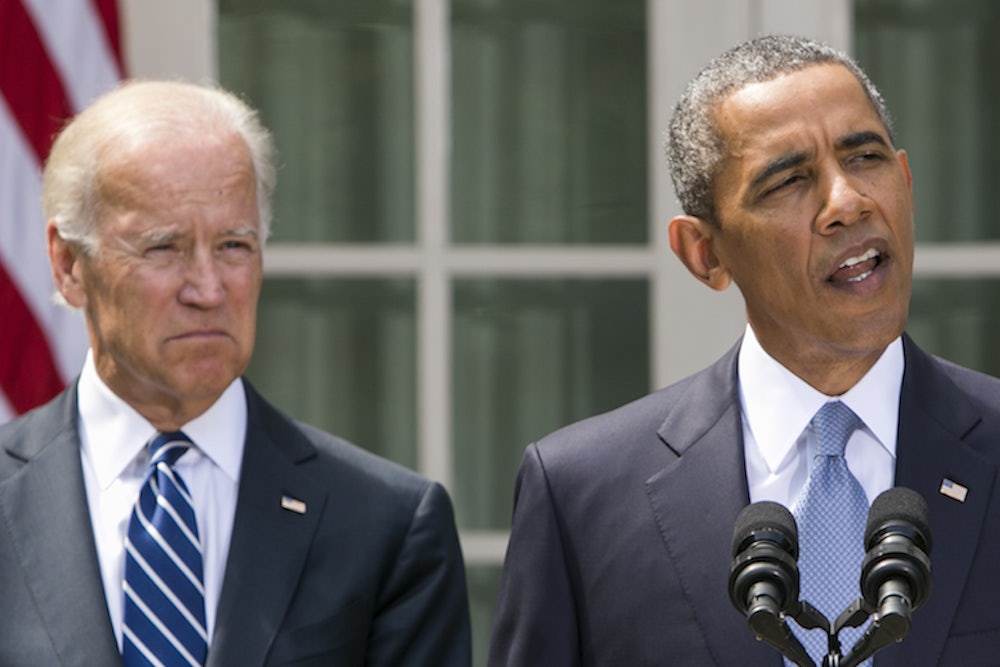President Obama has just declared his decision to launch military strikes against Syria, after seeking approval for Congress, in order to hold the Syrian government accountable for its recent chemical weapon atrocities. The Obama administration and many advocates of military strikes against Syria – including some members of Congress, many security experts, and the French President – have stated that the long-term object of this policy is to deter future use of chemical weapons generally, not just by the Syrian government. Yes, they want to punish Syrian president Assad and prevent him from using chemical weapons again, but their primary audience is other governments – especially Iran’s – who might be tempted to use weapons of mass destruction.
If that’s the goal, the policy rests on questionable assumptions and has been badly botched. Carrying out the contemplated strikes could even undermine deterrence, depending on what happens next. There are, however, some steps the Obama administration could take to strengthen deterrence (or, in the Obama administration’s words, enforcement of the norm) against using weapons of mass destruction in the future.
First, too much emphasis has been placed on the idea that the calculus and behavior of other governments – including Iran’s mullahs – depends on whether the United States now carries out its threats against Syria. It’s tempting to assume that other leaders view this as a test case, but empirical evidence casts substantial doubt on this assumption about preserving credibility: Besides the fact that these dictators’ psychology often doesn’t match what we see as logical, they likely recognize the obvious reality that each case is different, and that the likelihood of major military action depends on many contextual factors including strategic stakes for the United States and its allies.
Even if the Iranian government is watching closely the U.S. response to Assad’s chemical weapon use in determining its own policy, and it reads U.S. politics accurately, how would it read a set of missile strikes against Syria now? Sure, the Syrian government and military may pay a short-term price in terms of demolished weapons and capabilities, but it’s likely that any government – like Syria’s – that uses these weapons does so because what it fears most is regime overthrow. Yet the Obama administration has emphasized stridently that it is not contemplating regime change; indeed, it has stressed through media leaks and plants, and now even presidential speeches, that any strikes will be very quite limited.
The Iranians have already demonstrated that they will absorb tremendous pain (in the form of crippling sanctions, diplomatic isolation, and so on) in response to their efforts to build nuclear weapon capabilities, so the credible threat of brief air strikes or missile strikes in response to using WMD in is not game-changing. If the real audience of U.S. responses to Syrian chemical weapons is Tehran, it should instead convey – through its media leaks and plants – that the reason Obama is hesitant to act now is because he’s saving his military resources and political capital for a possible and much larger military action against Iran.
Besides placing too much weight on a contemplated military response to Syria, the Obama administration’s WMD-deterrence policy has played into opponents’ hands by emphasizing UN inspections and the expectation that there could be timely, certain, and universally-accepted proof of chemical weapons use. The shadow of mistaken Iraq WMD assessments by the United States (as well as Britain) creates doubt about unilateral U.S. claims, but UN inspections give too much control to perpetrators who can interfere with their work and to outside supporters, like Russia, who can slow down the process. It also gives perpetrators time to prepare for military strikes and for their own responses too them.
If the object is to strengthen deterrence of future use, the United States should make clear that UN inspections, while helpful, will not be determinative in responding to WMD attacks. Those who commit mass atrocities against their own people, as Assad’s government has, will get no benefit of the doubt. Any foot-dragging by such governments will be considered evidence of guilt. And those UN Security Council members who try to game these processes in aid of their client-states will relinquish the legitimacy and future reliance on that collective system.
The long-term goal of enforcing the taboo against using chemical and other mass destruction weapons requires much more than simply making good on a past threat. Rather than launching a carefully limited half-measure now, the Obama administration should use its political and diplomatic capital in ways like these that are more likely to shape future decisions by those audiences we most need to influence.
Matthew Waxman is a professor at Columbia Law School, as well a fellow at the Council on Foreign Relations and a member of the Hoover Institution Task Force on National Security and Law. This piece originally appeared in Lawfare.
